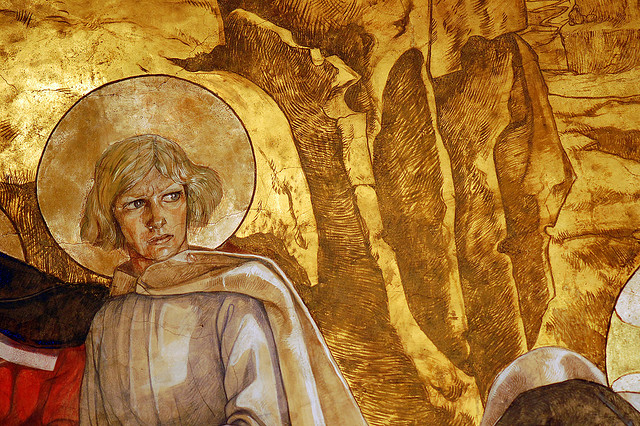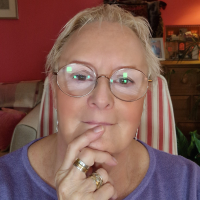
This is the kind of pain that we all know but can hardly bear to acknowledge.
We’ve all come close to drowning in it.
It’s messy and dirty and complicated.
It goes way beyond simple pain, like when someone has said something cutting and we’re stinging from the hurt of it, or where someone we love is in agony and it’s tearing us apart, too.
The source of this kind of pain is harder to find, and we avoid it’s truth.
We often call it being stuck.
Let me try to make it real with a story:
A client, a young woman, probably in her early twenties, is sitting opposite me in my therapy room.
“But he mustn’t forget! I can’t let him! I make sure he remembers! Every 10th of every month I remind him. I make sure he knows what he’s done and what he’s put me through. He must always know, always. He’s the father of my baby, and he must never forget!”
The young woman in front of me is utterly exhausted, drained from lack of sleep and wrung out from raw emotion. She’s stuck. She goes round and round in ever decreasing circles of impossibility, and there’s no way out. She can see no prospect of relief.
She is stuck.
She tells me she saw “Mrs Witch” the other day. She says she came to collect “The Father of My Baby” from work. I notice that these people have no names. It’s like a fairy tale, a myth, a story—not real.
I acknowledge how raw it all feels, how enormous, how overwhelming. I say it sounds like these people are causing her a great deal of suffering.
And then I acknowledge that there seems to be a baby in the middle of all this somewhere. And I wonder aloud about what might have happened.
She looks up, startled.
She tries several times to speak, and each time changes her mind. She tells me she doesn’t know how to say it. She tells me she can’t say it. She says that if she does it will be true.
I’m beginning to get a picture of how awful this must be for this young woman to need to control reality in this way. I can see that denial is playing a huge part in how she’s coping with whatever has happened. I know I have to ask this question, as gently as I can.
“What happened to your baby?”
I speak almost in a whisper.
I can’t find words to adequately describe to you the raw agony in her face as she looks into my eyes and holds my gaze. I feel her pain sear through my body—the heat of it—and for a moment the chaos of it plunges my brain into a place of such terror and darkness that I can’t pull my thoughts together.
This is what stuck feels like.
But I have asked the question and, in the swirling storm that follows my asking it, she is reaching for an answer—a way to tell me.
Her own voice is also a whisper, so quiet I have to strain to hear.
“She died.”
And then she finds the courage to repeat it, “She died.”
We begin to talk, little piece by little piece, through her story:
How she’d fallen in love with a colleague at work, how wonderful it had been, how they’d planned their future, how they’d planned to move in together, how they’d wanted to seal their love for each other with a baby.
How wonderful it had been when she realised she was pregnant, how overjoyed he’d been when she’d told him, how they’d decided the baby would be a girl, and laughed together as they chose names for her.
And then the day she’d looked out of an office window, in a room she’d never normally be in, down at the car park and seen him, “The Father of my Baby”, with her, “Mrs Witch.”
She describes how her blood had run cold as she watched the father of her baby kiss this woman down in the car park on the lips, and then take the toddler she was holding from her, swing him up in the air, laughing, and kiss him again and again.
She tells me how her legs had gone weak beneath her and she’d had to grab hold of the edge of the table to stop herself from sinking to the ground as she reached out to feel for a chair. And how she’d sat there for two hours trying to take it in.
The words come thick and fast as she describes the confrontation, the admission, the awful discovery that this woman was his wife, and the toddler his son. Throughout it all, she refers to this man as “The Father of my Baby” and his wife as “Mrs Witch.” She is working hard to keep him good and her bad.
And through all this, I’m holding the reality I now know we must go to. Because without it, this young woman will remain in this agony forever.
The stuckness is about to give.
I ask why the 10th of each month is so significant. Why it is that this date must never be forgotten.
She catches her breath, steadies herself, searches my face to see if she can trust me with it. Then she says, “Because it’s the day my baby died.”
And then, after a long silence, in which I hold the space sacred and she makes her decision, she says the words she has been trying for two years never to say.
“I killed her.”
And then she sobs.
Finally, the denial is over and at last she can begin to find her way through to relief. It’s the place she’s dreaded. But it’s a better place. A place of release and the possibility of healing.
And then, a momentous decision. She reaches out her hand and, through tears, whispers,
“Thank you.”
I take her hand and squeeze it. In that moment, there is no difference between us.
So what can we take from this?
1. Stuck is always about denial.
2. Denial is always about the fear of pain.
3. Trying to avoid pain perpetuates pain.
4. Relief comes when we move from denial to acknowledging reality.
5. Relief and release is always healthier than staying stuck, and begins the process of letting go and forgiving ourselves and each other.
6. In this process lies our common humanity and it requires that we meet it with compassion.
7. True healing happens when we can hold sacred space for one another, and it blesses us all.
~
Relephant read:
Aborting Shame: One Woman’s Experience With Abortion.
~
Author: Janny Juddly
Editor: Khara-Jade Warren
Image: Steve Snodgrass/ Flickr
~


Read 0 comments and reply